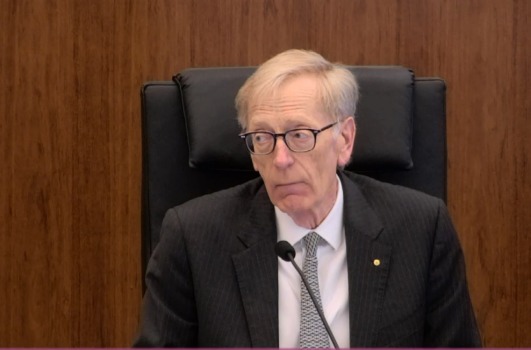There are so many issues coming out of the Royal Commission into banking that its hard to maintain the outrage. Here is yet another one that might have slipped through in the torrent of mis-deeds:
Hayne: “As beneficiary you can’t call for the asset which is held on trust for you? Is that right?”
AMP: “Yes, that’s correct,”
Hayne: “An unusual form of trust, I would have thought. “
long pause
Hayne: “The benefiary can’t call for the asset, is that your position?”
AMP (eventually): “No, in order to move they would need to sell that asset.”
Hayne’s point is there are a multitude of ways that platforms get customers to stay, and denying in-specie distributions is just one of them.
Say you bought a fund through AMP and put it on their platform, being charged 2.5% per annum for the privilege. Then, a few years down the track you go to another planner and you want to keep your investment but simply access it through another platform. On the platform discussed above, AMP will make you sell the asset and realise a taxable gain. Which AMP is betting that you won’t want to do, locking you into the AMP platform for longer.
Having been in the industry for a long time on the wholesale end, and then going through the process of putting my fund onto a retail platform it was horrifying to see the fees and the conditions on some platforms.
There are a whole range of platforms that I could not in good conscience recommend to any of my clients and I have no idea how advisers can. I have pulled the same face Hayne does on the video, and asked the same incredulous question about the definition of “custody” or “trust” on more than one occasion…
My tips for best of breed platforms:
- You want in-specie distribution. i.e. when you leave your manager you don’t have to sell the assets. This is the most tax efficient and shows confidence from the manager and the platform that they will rely on performance to keep your investment rather than high exit costs.
- You need a 3rd party, reputable custodian. This prevents fraud.
- You shouldn’t be paying more than 0.5%. And the fees are coming down over time – you should be seeing the decreases rather than being locked into a rate from 10 years ago.
- Buy/sell spreads on fund or trading costs should be low. Less than 0.5% generally, for large-cap funds less than 0.3%.
- My preference is for separately managed accounts rather than unit trusts as it means that your tax position isn’t mixed up with everyone else’s. Not everyone offers this yet. But the better managers do.
Damien Klassen is Head of Investments at Nucleus Wealth.
The information on this blog contains general information and does not take into account your personal objectives, financial situation or needs. Past performance is not an indication of future performance. Damien Klassen is an authorised representative of Nucleus Wealth Management, a Corporate Authorised Representative of Integrity Private Wealth Pty Ltd, AFSL 436298.

